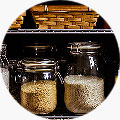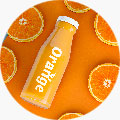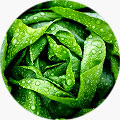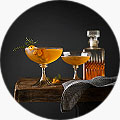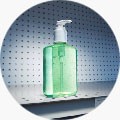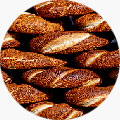Ylang ylang is a yellow, star-shaped flower that grows on the Cananga tree (Cananga odorata). This tropical species is native to countries surrounding the Indian Ocean, such as India, the Philippines, Malaysia, Indonesia, and parts of Australia. Ylang ylang’s heady, aromatic scent is fruity, flowery, and rich.
The ylang ylang flower is used to make several types of essential oil, via steam distillation. The oils vary in the intensity of their scent.
Ylang ylang extra is the most potent essential oil derived from the ylang ylang flower. This oil is often used as a top note in perfumes, such as Chanel Number Five.
The less potent essential oils are used as medium-to-base notes in perfume, and to make products such as cologne, lotion, food flavoring, and soap. The subtlest form of ylang ylang is often known as Cananga oil.
Uses
Ylang ylang has been found in research to:
Some people use ylang ylang as an aphrodisiac and for sexual stimulation, although its benefits in this area are primarily anecdotal.
Ylang ylang also has a history of use as a traditional, herbal treatment for conditions such as:
-
stomach distress
-
rheumatism
-
gout
-
malaria
-
headache
-
pneumonia
Ylang ylang benefits
Ylang ylang has some proven benefits, and some uses indicated by anecdotal evidence. For example:
-
A small studyTrusted Source found that ylang ylang reduced anxiety and boosted self-esteem when it was either applied to skin or inhaled. Ylang ylang’s beneficial effect on mood has been duplicated in other studies, and is also substantiated via anecdotal evidence.
-
Another study found that inhalation of ylang ylang had a sedative effect, by significantly reducing systolic and diastolic blood pressure rates as well as heart rate in healthy men.
-
Ylang ylang contains linalool, a compound which has antibacterial, antifungal, and anti-inflammatory properties. It has been shownTrusted Source to be effective at reducing Candida albicans, a fungal infection.
-
In many parts of the world, ylang ylang flowers are pounded into paste and used as an inhalant to treat asthma.
-
When dried, ylang ylang flowers are used to treat malaria symptoms in countries throughout Asia.
-
Ylang ylang is used as a folk remedy to increase sexual desire and reduce sexual anxiety.
Ylang ylang side effects
Ylang ylang contains several allergens, such as isoeugenolTrusted Source. It has been linkedTrusted Source to contact dermatitis and can be irritating to skin when applied topically.
As with any essential oils, do not apply full-strength ylang ylang to skin. Ylang ylang should be mixed with a carrier oil and patch tested, before using on a large area of the body, face, or scalp.
Ylang ylang is poisonous to dogs and cats. Do not apply ylang ylang to your pet’s skin, paws, or coat, and make sure not to use it where your pet might lick or inhale it.
Ylang ylang is currently considered safe when used as a food additive. However, if you are allergic to its ingredients, it may be best for you to avoid it completely.

